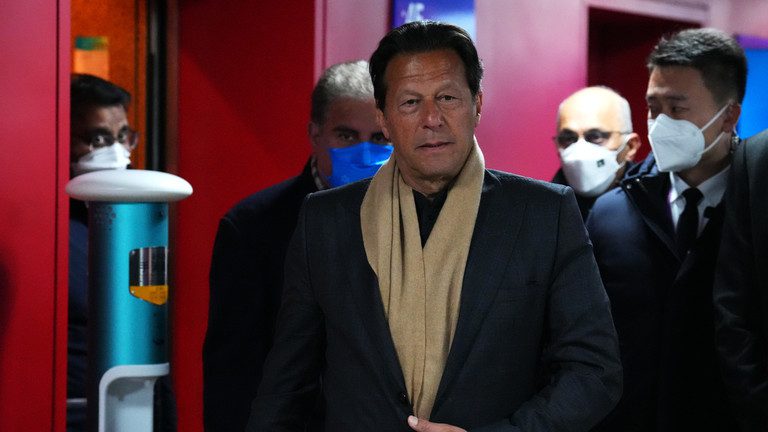World
Ex-Pakistani PM alleges US plotted to have him killed after the Russia deal

According to Imran Khan, he defied US pressure to denounce Moscow over its operation in Ukraine.
Imran Khan, the former prime minister of Pakistan who was detained last month on suspicion of corruption, stated in a lengthy interview with Newsweek that he was removed from office last year as a result of diplomatic pressure from the United States. The interview was published on Saturday.
Khan claimed in an interview with a US publication that he visited Russia on the same day that Moscow began its military operation in Ukraine in February 2022. Khan added that while he disagreed with the offensive’s goals, he declined calls to denounce it in order to preserve a trade agreement.
Khan claimed that the US “wanted us, through the United Nations, to condemn Russia,” adding that his government had negotiated a deal to import “cheap oil” and wheat from Moscow. “What about the effect it will have on our population if we condemn them right now?”
Khan continued, saying that at a meeting between Pakistani and US diplomats in early March 2022, he was told that if he didn’t step down as prime minister, there would be “consequences.”
The no-confidence motion will be presented to the National Assembly the following day, according to Khan. And just before that, we notice that the American Embassy is meeting with our backbenchers in the legislature. Additionally, he said he was “puzzled” as to why the US would “object to a deal.”
The US has stated that there is “no truth” to Khan’s repeated allegations of a conspiracy against him that is supported by Washington.
Since Khan was removed from power in April of last year after losing a no-confidence vote, he has been charged with a variety of offenses, including sedition and corruption. He refutes each and every charge of wrongdoing.
An uproar among Khan’s supporters was caused by his arrest in May, which he claimed was the result of Pakistan’s “undemocratic” military chief. Khan is a former cricket star. Authorities accuse him of trading money for political favors while in office.
Khan’s accusations have exacerbated Islamabad’s already precarious political juggling act as the nation of 231 million people struggles to deal with skyrocketing food prices, a protracted economic crisis, and violent extremism. In the midst of the political stalemate, discussions with the International Monetary Fund (IMF) regarding an economic bailout have also stalled.
Following the murder of a lawyer who was looking into sedition charges against the former premier, Khan was named by Pakistani police in connection to a case against unidentified gunmen earlier this week.
